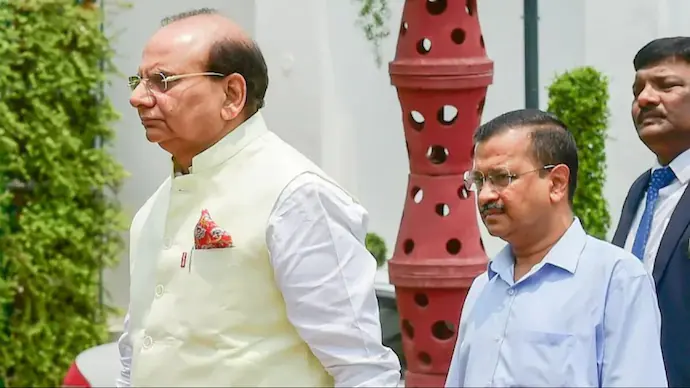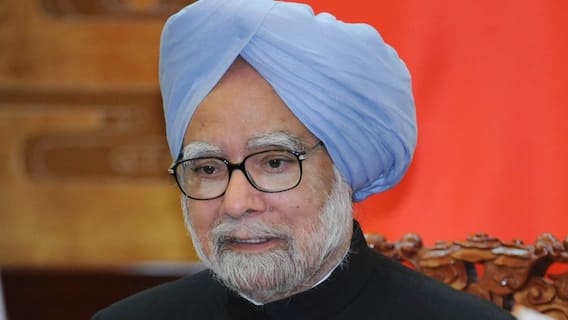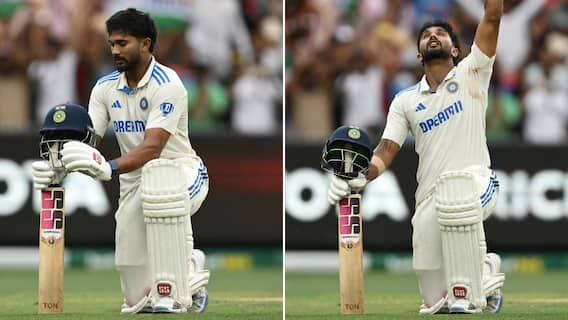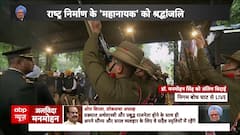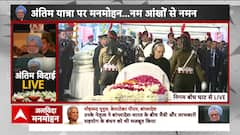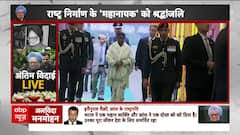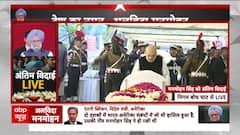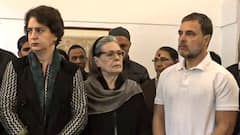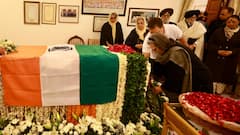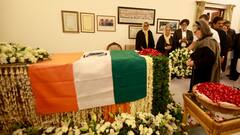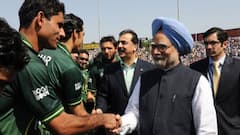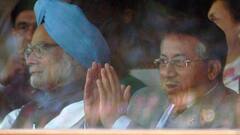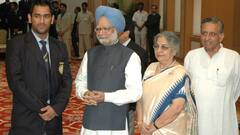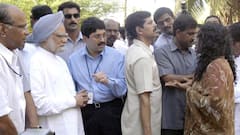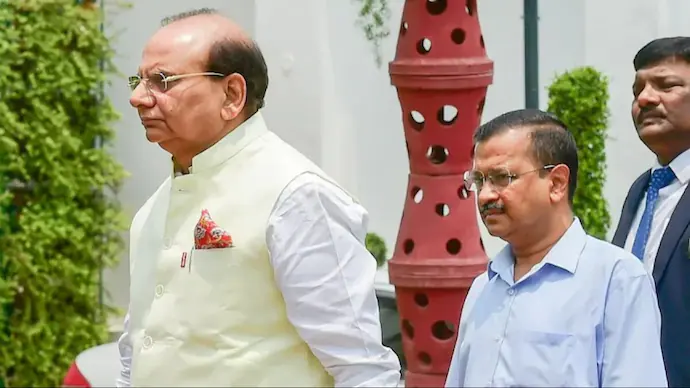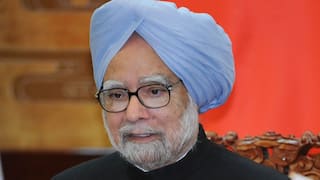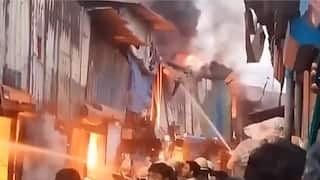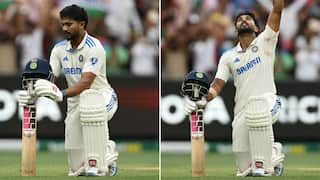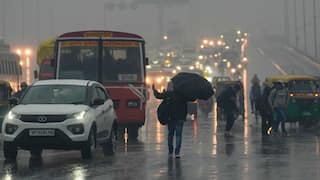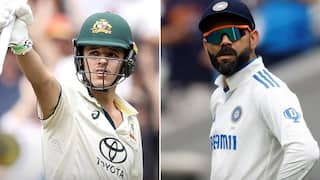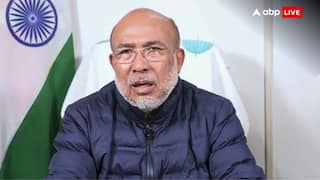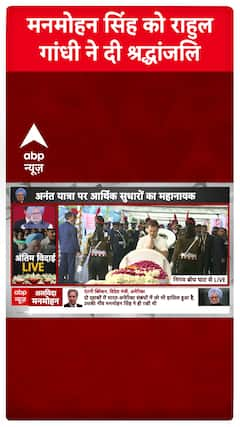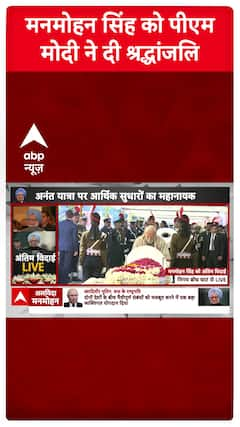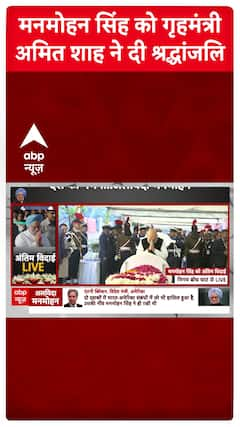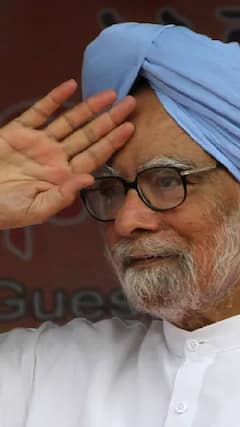Explorer
Advertisement
Cyrus Mistry says was pushed to a position of 'lame duck' chairman

Mumbai: Sacked unceremoniously, a "shocked" Cyrus Mistry has levelled a series of allegations against Ratan Tata and contended that he was pushed in to a position of "lame duck" chairman and changes in decision making process created alternate power centres in Tata Group.
In an explosive confidential email to Tata Sons board members, he accused them of replacing him as Chairman of India's largest conglomerate of without so much as a word of explanation and without affording him an opportunity of defending himself "in a summary manner" that must be unique in the annals of corporate history.
"I was shocked beyond words at the happenings at the board meeting of October 24, 2016. Apart from the invalidity and illegality of the business that was conducted, I have to say that the Board of Directors has not covered itself with glory.
"To 'replace' your Chairman without so much as a word of explanation and without affording him an opportunity of defending himself, in a summary manner must be unique in the annals of corporate history," he wrote in the email on October 25 which was circulated widely to the media today.
Attempts to get a response from Tata Sons on Mistry's charges failed. Mistry said he was promised a free hand when he was appointed Chairman in December 2012 but Articles of Association were modified, changing the rules of engagement between the Tata family Trusts and the Board of Tata Sons.
Stating that he inherited problems, he went on to raise corporate governance issues alleging representatives of family trusts, which hold two-thirds of Tata Sons shares, were reduced to "mere postmen" as they left board meetings midway to "obtain instructions from Mr. Tata."
In clear signs that not all was well between him and Tata, he highlighted his predecessor's loss-making Nano car project that consistently lost money but could not be shut down for "emotional reasons" and because it would have stopped the supply of Nano gliders to an electric car making entity where Tata had stake.
He alleged that it was Tata who forced the Group to foray into the aviation sector by making him a 'fait accompli' to joining hands with Air Asia and Singapore Airlines and making capital infusion higher than initial commitment.
Also, "ethical concerns" had been raised over certain transactions and a "recent forensic investigation revealed fraudulent transactions of Rs 22 crore involving non-existent parties in India and Singapore," he wrote.
He warned that the salt-to-software giant may face Rs 1.18 lakh crore in writedowns because of five unprofitable businesses he inherited.
Defending his record, Mistry said he inherited a debt- laden enterprise saddled with losses and went on to single out Indian Hotels Co, passenger-vehicle operations of Tata Motors, European operations of Tata Steel and part of the group's power unit and its telecommunications subsidiary as "legacy hotspots."
He said the suddenness of the action, and the lack of explanation has led to all manner of speculation and has done immeasurable harm to his reputation as well as that of Tata Group.
"I cannot believe that I was removed on grounds of non- performance," he said going on to point to two directors, who voted for his removal, only recently lauding and commending his performance.
Detailing out the problems he inherited in several Tata group firms, Mistry in his letter said the foreign acquisition strategy with the exceptions of JLR and Tetley, had left a large debt overhang.
"The European steel business has potential impairments in excess of USD 10 billion, only some of which has been taken as of date. Many foreign properties of IHCL and holdings in Orient Hotels have been sold at a loss. The onerous terms of the lease for Pierre in New York are such that it would make it a challenge to exit," he said.
Tata Chemicals still needs tough decisions about its UK and Kenya operations, he added.
Mistry also hit hard on the group's hospitality arm IHCL, saying beyond flawed international strategy, it had acquired the Searock property at a highly inflated price and housed in an off-balance sheet structure.
"In the process of unraveling this legacy, IHCL has had to write down nearly its entire net worth over the past three years. This impairs its ability to pay dividends," he said.
Tata Capital had a book that required clean up on account of bad loans to the infrastructure sector, he added.
Highlighting the problems faced by the group's telecom business, Mistry said, "Of all the companies in the portfolio, the telecom business has been continuously hemorrhaging. If we were to exit this business, via fire sale or shut down, the cost would be USD 4-5 billion. This is in addition to any payout to Docomo of at least a billion plus dollars."
He also lashed out at the original structure of the Docomo transaction, saying it "raises several questions about its appropriateness from a commercial or prudential perspective within the then prevailing Indian legal framework".
In light of all this, Mistry said "our strategy over the past three years has been to increase the EBIDTA from Rs 400 crore to Rs 2,500 crore in the hope of being a potential player in consolidation of the industry."
On Tata Power, he said the company aggressively bid for the Mundra project based on low-priced Indonesian coal but as regulations changed, "the losses in 2013-14 alone amounted to Rs 1,500 crore".
"Given that Mundra constitutes Rs 18,000 crore of the capital employed (40 per cent of the overall company's capital employed) this substantially depresses the return on capital for Tata Power as well as carries the risk of considerable future impairments," he said in the letter.
Turning to Ratan Tata's pet project Nano, Mistry said the product development concept called for a car below Rs 1 lakh but the cost were always above this and it had "consistently lost money, peaking at Rs 1,000 crore".
"As there is no line of profitability for the Nano, any turnaround strategy for the company (Tata Motors) requires to shut it down. Emotional reasons alone have kept us away from this crucial decision," he said.
Mistry further said: "Another challenge in shutting Nano is that it would stop the supply of the Nano gliders to an entity that makes electric cars and in which Mr Tata has a stake."
Follow Breaking News on ABP Live for more latest stories and trending topics. Watch breaking news and top headlines online on ABP News LIVE TV
View More
Advertisement
Trending News
Advertisement
Advertisement
Top Headlines
Election 2024
India
Cities
Cricket
Advertisement


Saswat PanigrahiSaswat Panigrahi is a multimedia journalist
Opinion



